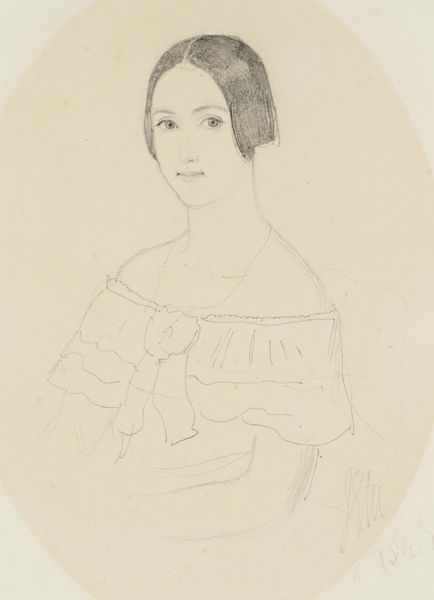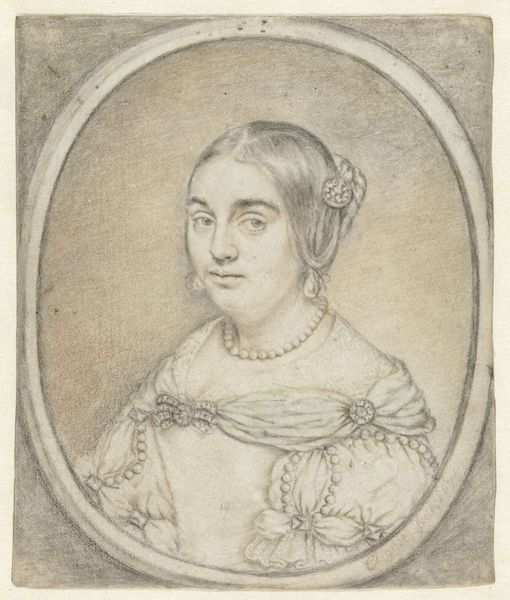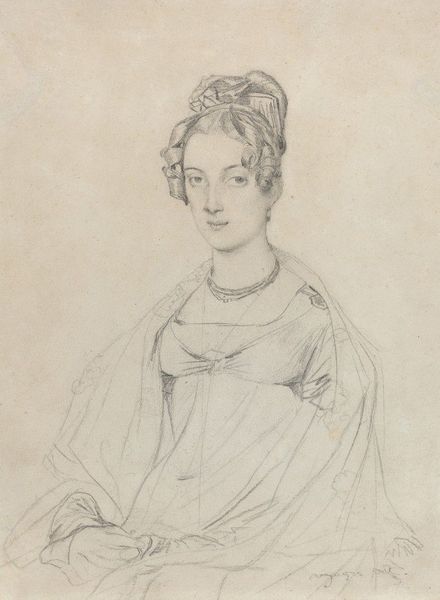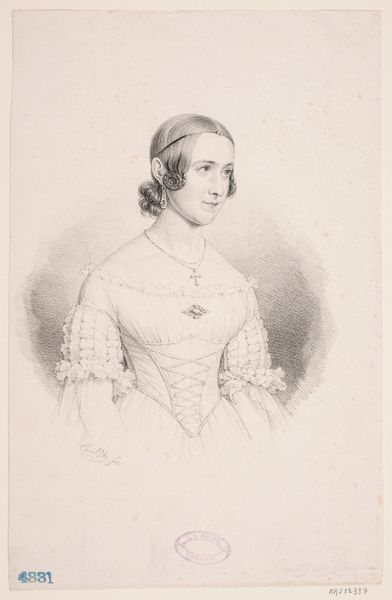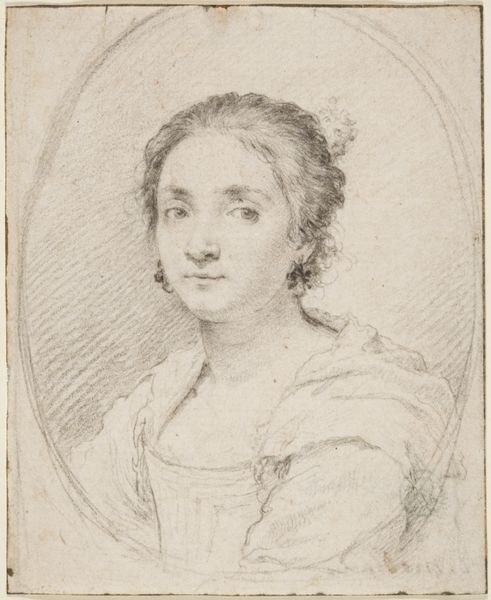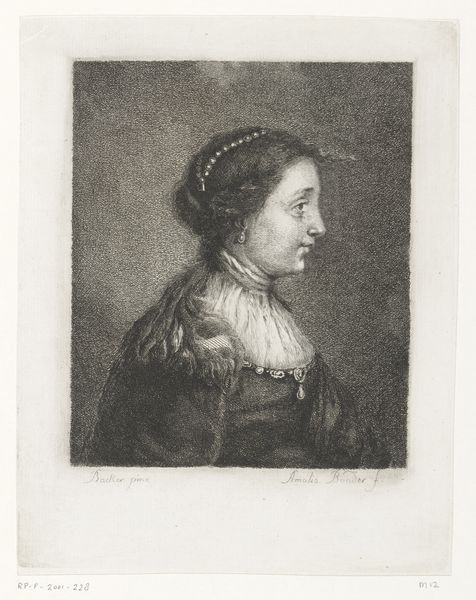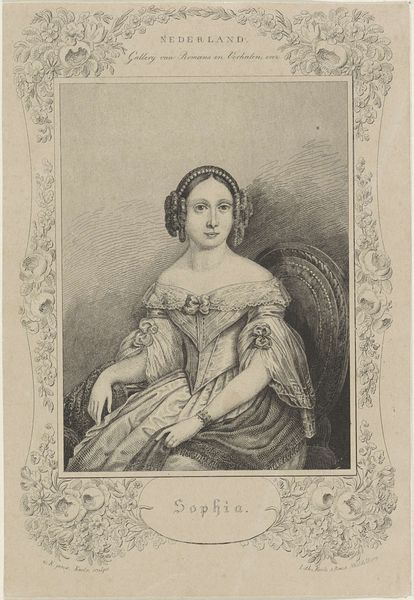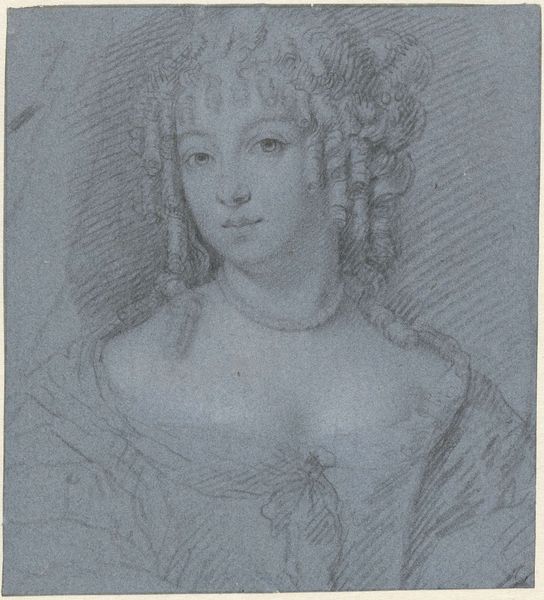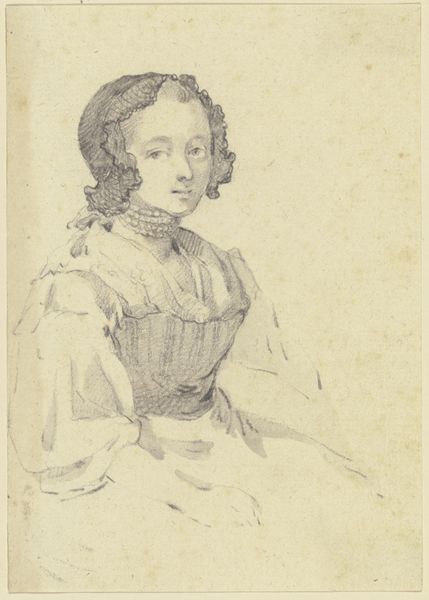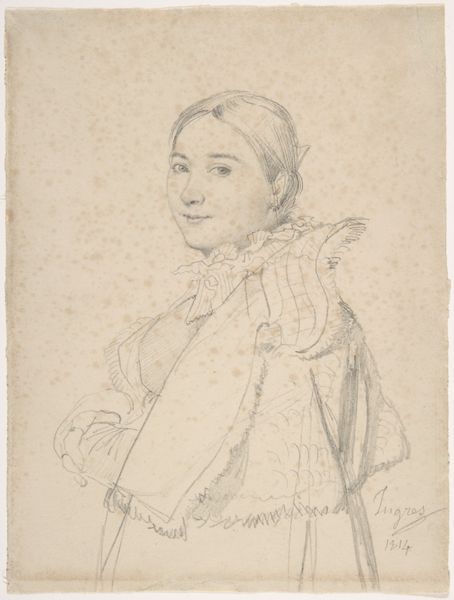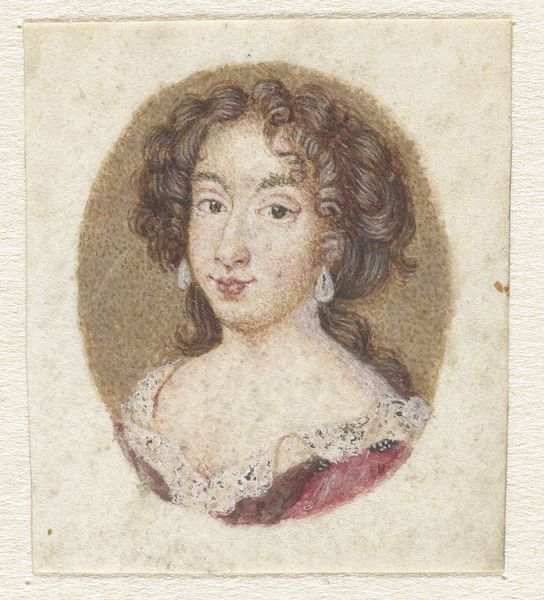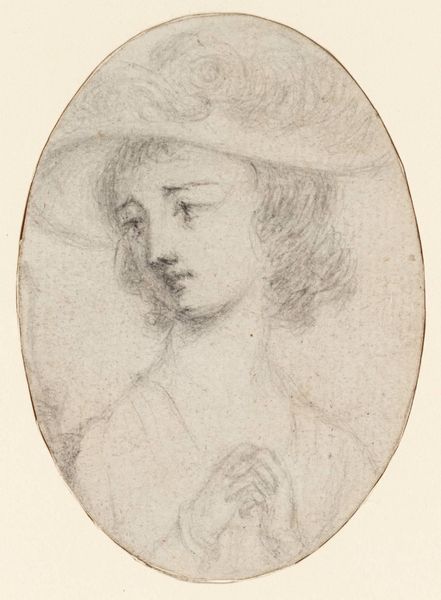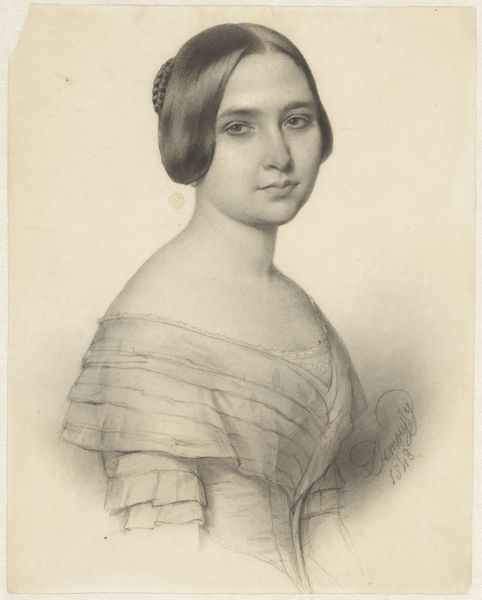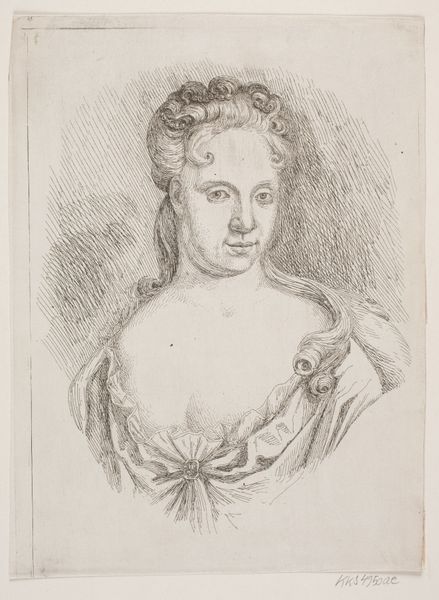
drawing, pencil
#
portrait
#
drawing
#
imaginative character sketch
#
facial expression drawing
#
light pencil work
#
16_19th-century
#
pencil sketch
#
personal sketchbook
#
idea generation sketch
#
pen-ink sketch
#
pencil
#
sketchbook drawing
#
portrait drawing
#
pencil work
#
academic-art
#
realism
Dimensions: height 166 mm, width 115 mm
Copyright: Rijks Museum: Open Domain
Curator: Allow me to introduce "Portrait of an American Woman," a pencil drawing crafted in 1843 by Johan Hendrik Koelman. It resides here with us at the Rijksmuseum. Editor: She has such a delicate air about her, a certain gentleness in her expression. The light pencil work almost makes her seem ethereal, like a fleeting vision. Curator: Indeed. It's fascinating how Koelman captures a sense of intimate portrayal even within the somewhat rigid conventions of 19th-century portraiture. Consider the circumstances of representation. For many at the time, having their likeness captured served not merely as a memento, but to participate in the era’s social discourse on identity and status. Editor: I'm immediately drawn to the symbols of her femininity – the low-cut dress and the glimpse of the flowers arranged in the background near the window. There’s something very deliberate about conveying her womanhood and associating her with these budding flowers. I wonder about her connection to notions of growth and beauty. Curator: It also reveals the interesting dynamics of transatlantic relations in the early 19th century. A Dutch artist depicting an American woman – we could certainly read it as a symbol of the increasingly close cultural and economic ties between Europe and America at the time. Editor: Do you think there is any evidence that Johan Koelman met his subject and sketched her from real life? Or perhaps from a drawing that already existed and was made by another artist? Curator: That's an interesting consideration, and it speaks to how portraits have been understood and circulated, in paintings or drawings, across social lines and national boundaries. Pencil sketches like this often served preparatory or documentary purposes. Editor: Perhaps Koelman worked on it in his sketchbook as a character study, possibly for another grander portrait to come. She may well represent ideals more than reality. But she holds our gaze captive with her calm air, and it leaves a rather strong afterimage of a particular beauty and feminine presence that transcends the mere circumstances of its creation. Curator: A compelling observation! Art helps us interpret so much, and by focusing on individual encounters, we see larger social and political themes at work. Editor: Right you are, it allows the spirit of a time to resonate once more in this moment.
Comments
No comments
Be the first to comment and join the conversation on the ultimate creative platform.
